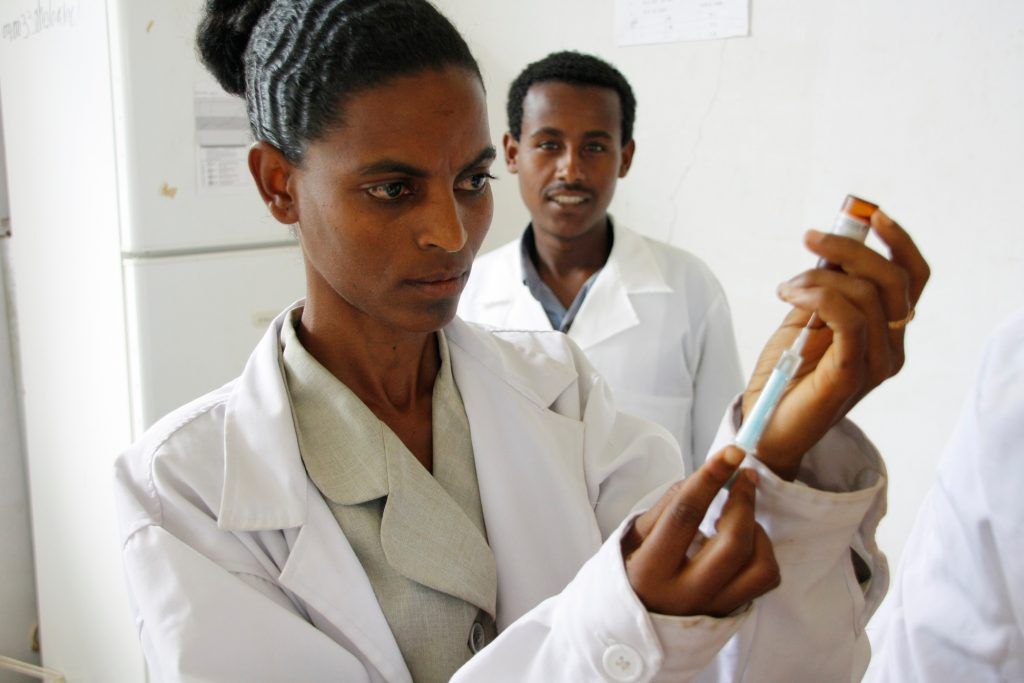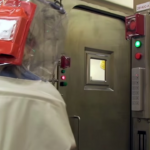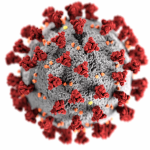Florida’s top doctor knows how measles is contained but sends unvaccinated kids to school during a measles outbreak, anyway
By Matt Field | February 23, 2024
 A nurse prepares a measles vaccine. Cases of the disease increased by 30 percent globally from 2016 to 2017. (Photo credit: Pete Lewis / Department for International Development)
A nurse prepares a measles vaccine. Cases of the disease increased by 30 percent globally from 2016 to 2017. (Photo credit: Pete Lewis / Department for International Development)
While overshadowed in the scary disease category by pandemic killers such as smallpox, the bubonic plague, Ebola, and, most recently, COVID-19, measles has through the centuries exacted a devastating toll on humanity, causing 2 million deaths a year until the adoption of widespread vaccination in the mid-20th century. Though the human experience with measles has been long (a ninth-century Persian doctor first described it), it’s also been instructive; widely available vaccines can now provide nearly perfect protection. Unfortunately, the lessons from humanity’s struggle with this most contagious disease apparently are falling on deaf ears. Measles is once again on the rise; this time, a top doctor is aiding its spread.
About 90 percent of people who haven’t had measles or been vaccinated against it will get it if they’re exposed. Normally, public health officials work to keep unvaccinated kids home from school during measles outbreaks, in accordance with Centers for Disease Control and Prevention (CDC) guidance. But when an outbreak began in Manatee Bay Elementary in South Florida this month, Florida Surgeon General Joseph Ladapo eschewed the standard public health advice and instead told parents in a Feb. 20 letter that the state was “deferring to parents or guardians to make decisions about school attendance.”
The move is not exactly surprising. Ladapo and his boss Florida Gov. Ron DeSantis have made challenging public health doctrine their calling card. DeSantis, until recently a Republican presidential candidate, quickly pivoted during the pandemic away from the school closures and other COVID mitigation measures. He hired Ladopo and began touting himself as an advocate of “medical freedom.” Last fall, Florida, the country’s third most populous state, recommend against people under 65 getting COVID vaccines—at a time when the CDC was recommending that everyone over 6 months of age get the shots. In January, Ladapo urged the federal government to halt COVID vaccinations, citing debunked theories about contamination. The vaccines are estimated to have saved millions of lives—1.4 million in Europe alone.
All states require vaccinations for students, but in many cases, religious, philosophical, or medical exemptions are available. Coinciding with a backlash against public health measures during the pandemic, a trend has emerged as states work expand access exemptions. Montana passed a law last year requiring immunization communications from schools include links to exemption forms. The CDC reported that requests for exemptions from childhood vaccines rose to their highest level in the 2022-2023 school year; only 93 percent of kids received school vaccines last year, below the recommended threshold to prevent the spread of measles.
In 2000, measles was declared eliminated in the United States. Now cases are on the rise. According to The Washington Post, this year, there have been 26 cases, double the number reported at this time last year.
John P. Moore, a professor of microbiology and immunology at Weill Cornell Medical College, told the Post that measles was spreading in Florida because parents have not been vaccinating their children with a safe and effective vaccine. “And why is that? It’s because anti-vaccine sentiment in Florida comes from the top of the public health food-chain: Joseph Ladapo,” Moore said.
Other government agencies have taken a different approach. When measles struck the New York City area in 2018-2019, unvaccinated children were barred from school. The city even began fining people who were not vaccinated; a nearby county barred unvaccinated children from public places, a controversial decision, even among vaccine proponents; and the state revoked a religious exemption to vaccination. The outbreak led to more than 600 cases in New York City—where nearly 86 percent of measles patients with a known vaccination record were not vaccinated.
Overall, public opinion on childhood vaccination for measles, mumps, and rubella is holding “steady,” according to a Pew Research Center survey published in 2023. The survey found 88 percent of respondents thought the benefits of the childhood vaccines outweighed the risks. But the study found still found cause for concern. Since the COVID pandemic began, support for requiring healthy children to be vaccinated to attend public school fell from 82 percent of respondents down to about 70 percent. And 28 percent of respondents supported allowing parents to decide on vaccinations, up 12 points from surveys taken in 2016 and 2019.
The change in public opinion is driven by Republicans; among them, support for childhood school vaccination requirements fell from 79 percent in 2019 to 57 percent.
With a well-funded vaccine skeptical movement on the rise, there could very well be further efforts like Ladapo’s to weaken rules and norms around vaccination. Vaccination rates for preventable diseases like measles could drop further. As public health law experts wrote in the Bulletin recently, “consequently, new vaccine-preventable disease outbreaks among schoolchildren are virtually assured. “
Editors Note: This story was updated to clarify that in the New York City measles outbreak of 2018-2019, 86 percent of patients with a known vaccination record were unvaccinated.
Together, we make the world safer.
The Bulletin elevates expert voices above the noise. But as an independent nonprofit organization, our operations depend on the support of readers like you. Help us continue to deliver quality journalism that holds leaders accountable. Your support of our work at any level is important. In return, we promise our coverage will be understandable, influential, vigilant, solution-oriented, and fair-minded. Together we can make a difference.
Keywords: measles, vaccination
Topics: Biosecurity














